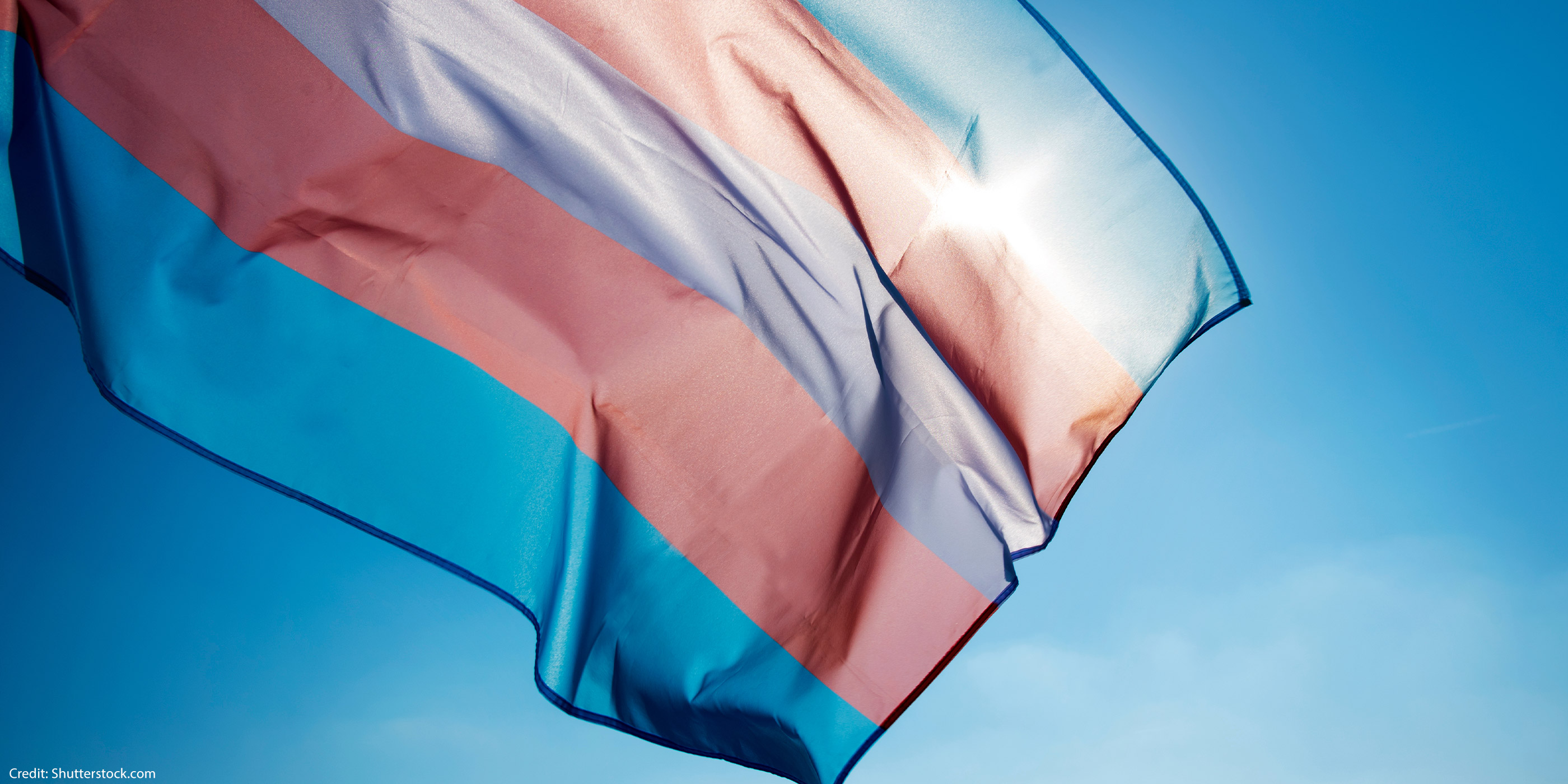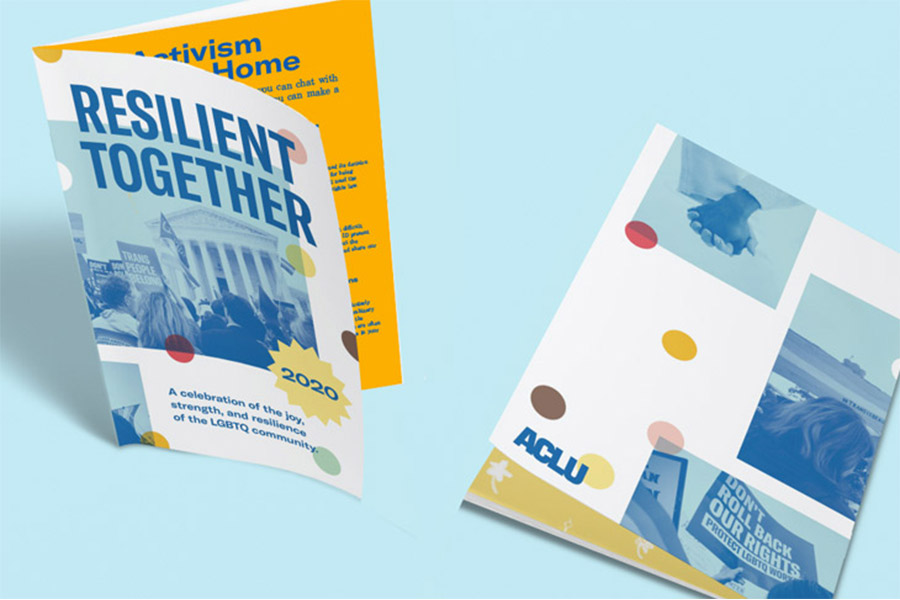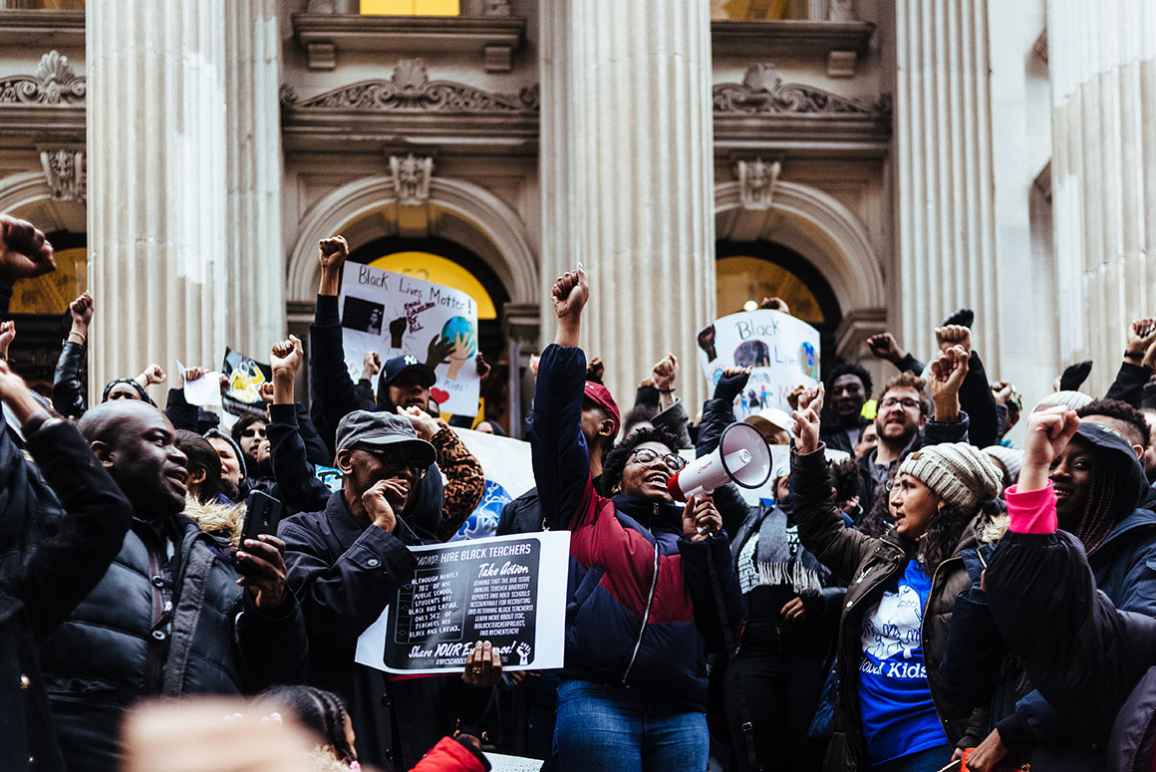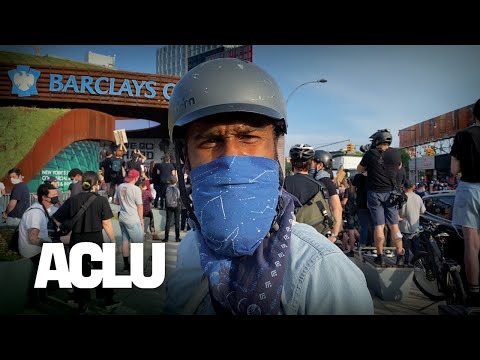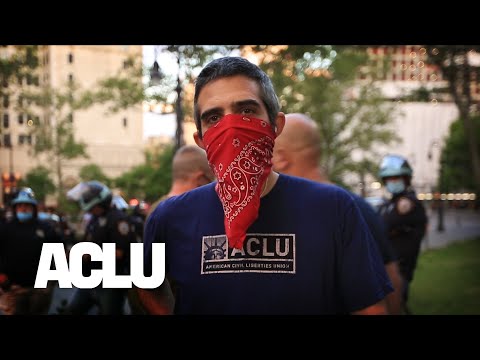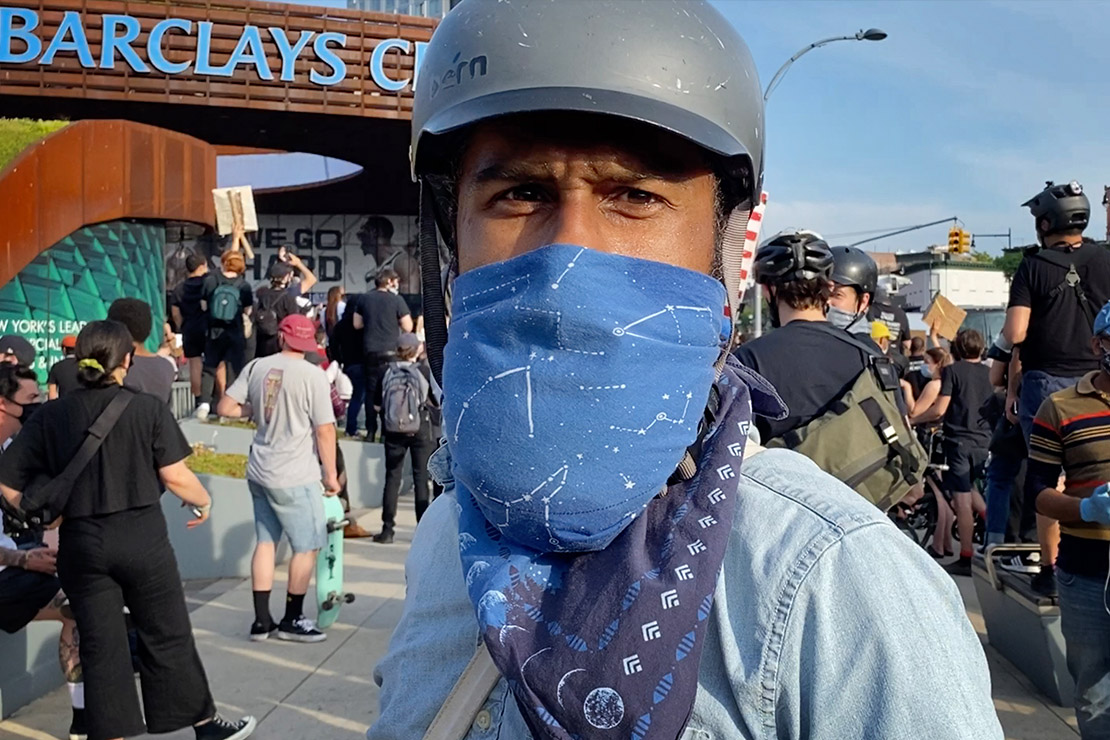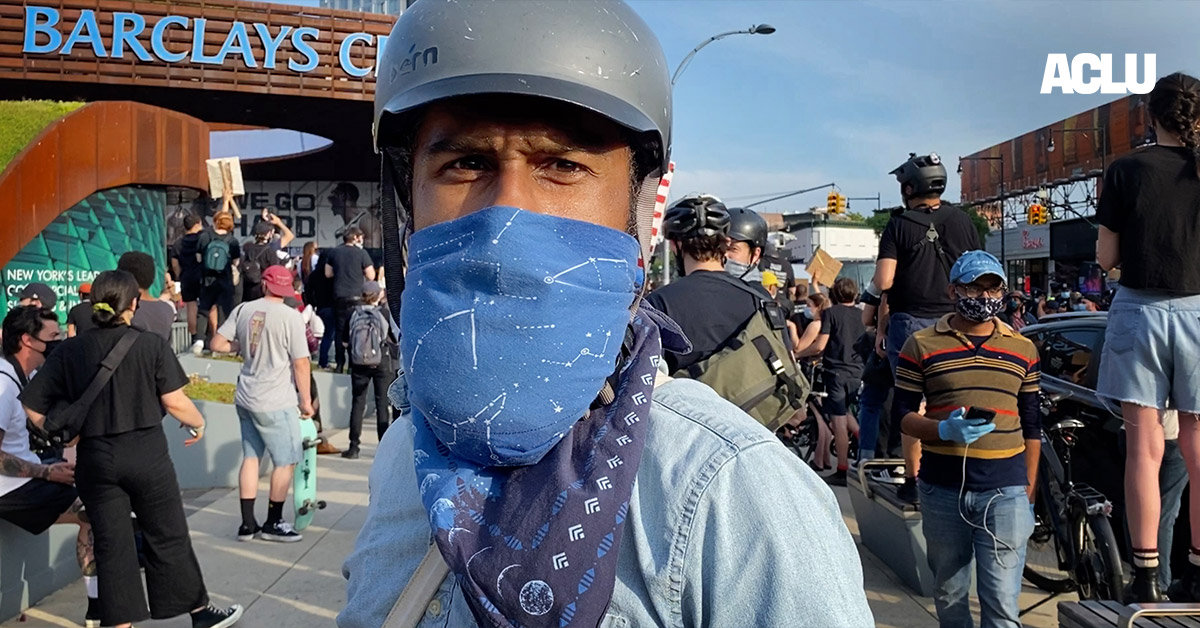Pride has never been just about the parties. To the LGBTQ community, Pride is about staking our place in the world and speaking truth to power. It’s about making clear that we’re here, we belong, and we are resilient — resilient together.
As our Trans Justice Campaign Manager LaLa Zannell has said: “For many Black and Brown queer and trans people, gathering in person has always come with a health and safety risk — including from law enforcement, and others who feel they have the right to harm us for simply being who we are … For many of us, this is not the first pandemic that shows the injustices in our health care, economic, and criminal justice systems.”
Whether you’re celebrating Pride 2020 over Zoom, on the phone, or standing six feet apart from your friends donning rainbow masks — the message of Pride remains, and it’s stronger than ever. The history of Pride is rooted in the LGBTQ community responding to police violence and abuse of LGBTQ people and sex workers and those who fought back.
This year, we’re showing what Pride means to us with a new Pride 2020 zine that sums up the year in LGBTQ rights, the meaning of pride to our community, profiles of trailblazers in trans rights including Aimee Stephens, and the fight ahead as we tackle sex work decriminalization, bans on trans athletes, attempts to license discrimination in the name of religon, and more. Plus, you’ll get a crossword, word search, a coloring book page, and more fun, socially distant ways to celebrate pride in 2020. This is how we stay resilient.
While the pandemic continues, so will our fight for LGBTQ rights, and especially for trans rights, which are under attack like never before. This year, dozens of anti-trans bills are moving through state legislatures in an attempt to police our bodies and the spaces we can access, including schools, health care services, sports, employment, and more. With so many lives on the line due to COVID-19, it’s more important than ever to ensure that trans people can access the same civil rights and liberties as everybody else. Trans people belong.
COVID-19 may have shut down our ability to celebrate Pride the way we’re used to, but we can still celebrate from home — whether by dancing in our rooms or chatting with friends on the phone. You can also send a message to Congress to pass the Equality Act and make sure you know your voting rights. Becoming an at-home activist is one way to stay safe and show what Pride is really about.
At a time when so many people are losing their lives, their jobs, their life as they know it, Pride shows us that if anything, we are resilient together.
Date
Tuesday, June 2, 2020 - 4:15pmFeatured image
